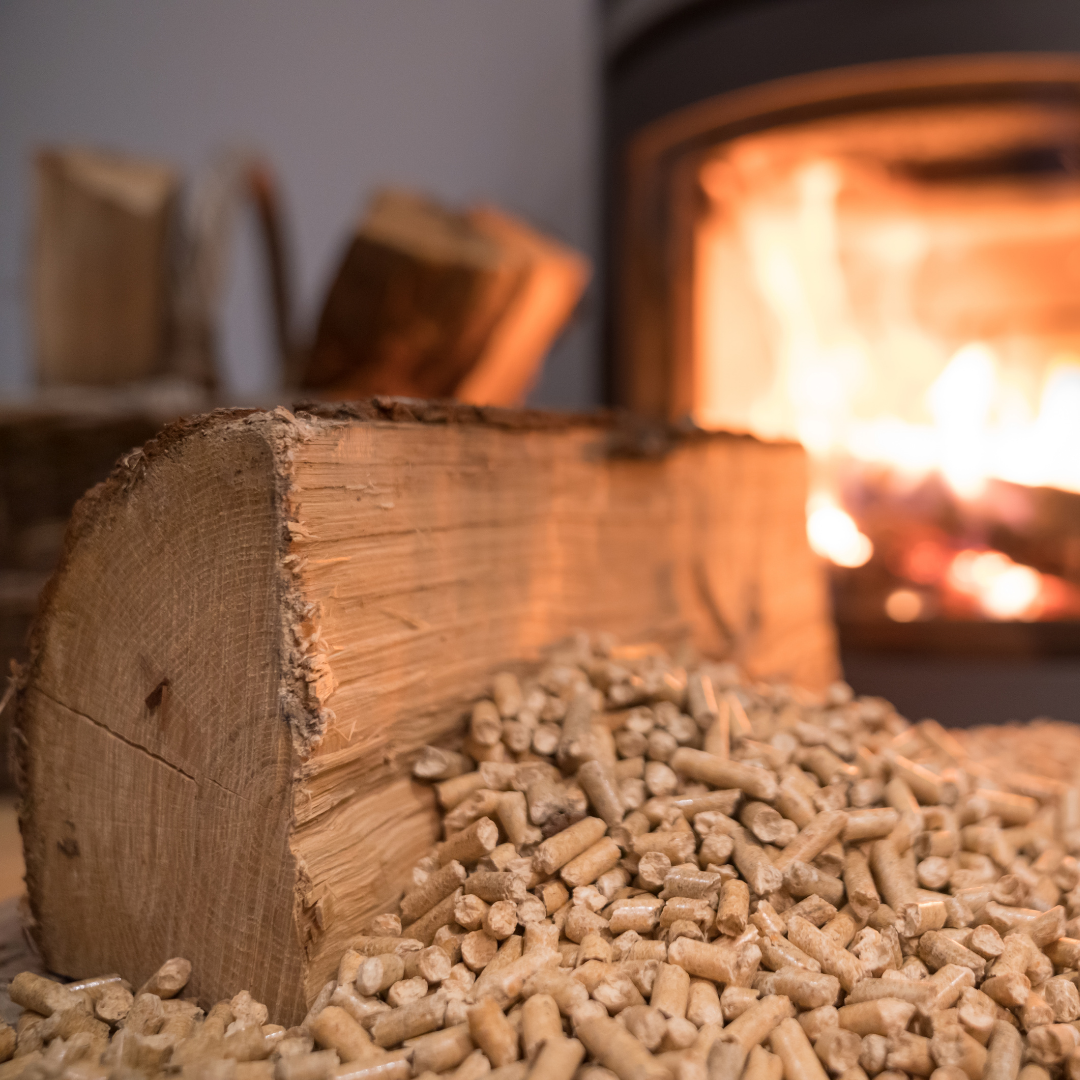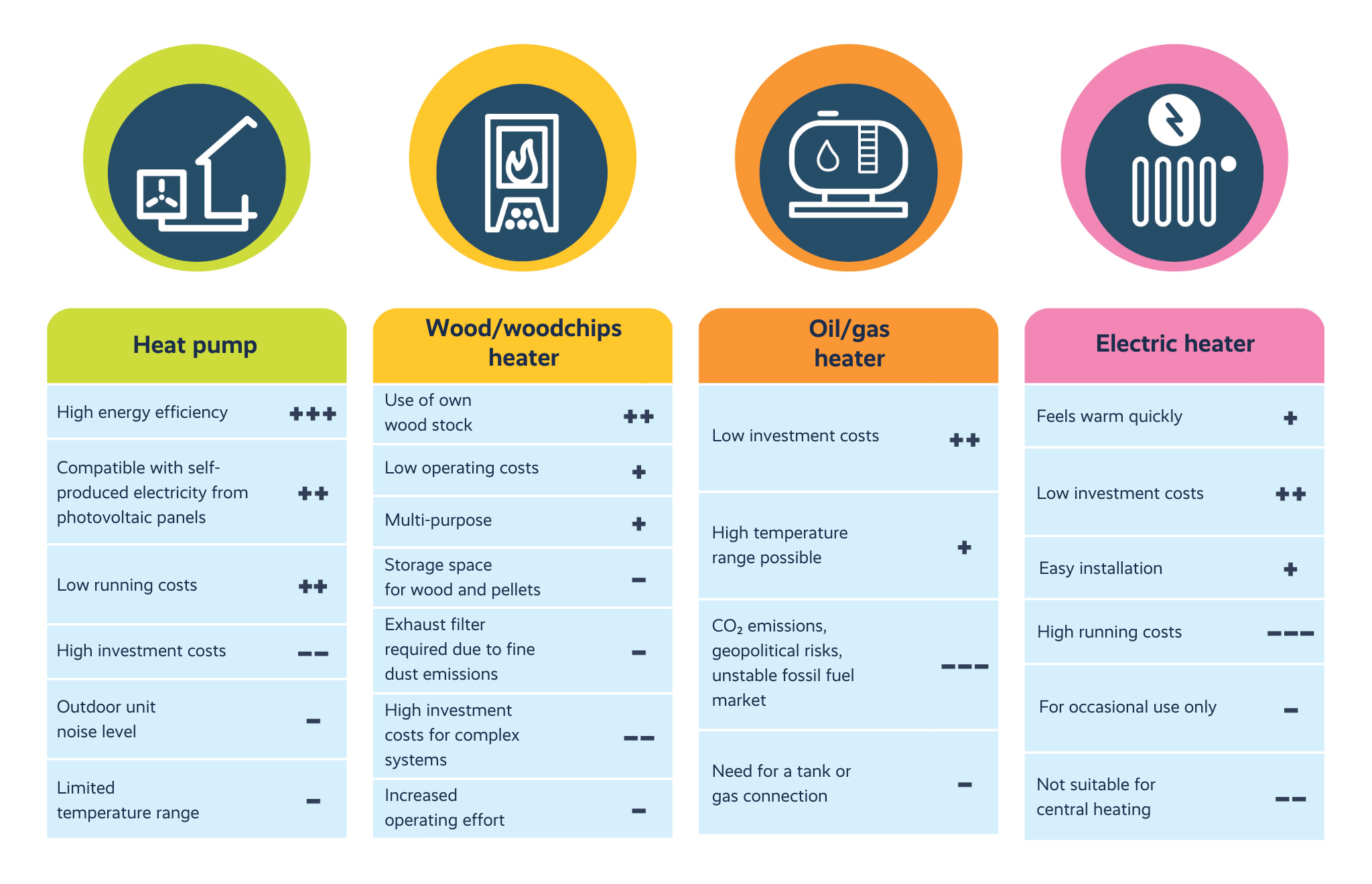Agricultural businesses can choose from a variety of heating systems to heat their buildings and production facilities efficiently and sustainably. The right choice depends on factors such as the size of the business, its location and its specific requirements. Klima-Agence offers independent, free advice to help you decide.
Heating systems for agricultural businesses
Heat pumps
Efficiency, sustainability and cost reduction
eat pumps are among the most advanced and sustainable heating solutions. They use environmental heat from the air, soil or groundwater and convert it into heating energy. For every unit of electricity used, heat pumps generate up to five units of heat, making them particularly efficient. If the heat pump is operated with the conventional electricity mix, the CO2 emissions are lower than with a conventional gas or oil heating system. If it is produced with renewable electricity, the CO2 footprint is reduced even further.
Wood and wood chip heating
Environmentally friendly but challenging
Wood and wood chip heating is another environmentally friendly option for farms, especially when using regional and sustainably managed wood. These systems use renewable resources and offer a certain independence from fossil fuels. They are particularly suitable for medium and large outputs.
Tips for sustainable and efficient wood heating
- Quality of the fuel: It is best to use pellets or wood chips with recognised quality labels, which guarantee the cleanest possible combustion. Logs should be avoided as far as possible, as their quality is not usually tested. If wood is used, it should be as dry as possible. Beech and oak are particularly suitable for heating systems, while birch is best for stoves.
- Reducing emissions: Wood heating systems release CO₂, particles and other gases such as methane. Make sure to install heating systems with a high level of filtration for fine dust particles. For existing systems, retrofitting a particle filter with better filtration can be useful. The maximum permissible emission values depend on the type and output of the system.
- Maintenance and inspection: Regular maintenance, inspection and cleaning of the chimney are essential to ensure the efficiency and safety of the system.

Oil and gas heating
High emissions and long-term costs
Traditional oil and gas heating systems, which are based on fossil fuels, are often inexpensive to purchase but have several disadvantages. They cause high CO₂ emissions, require a lot of maintenance and make users dependent on fluctuating energy prices.
Electric heating
Simple but expensive to operate
Although electric heating has the advantage of being easy to install, it is not suitable for long-term use on large farms because of its inefficient conversion of electricity into heat.
Biogas plants
Energy from organic waste
An interesting option for farms with livestock or extensive biomass resources is to use biogas plants. Organic waste such as slurry or plant residues are converted into biogas, which in turn can be used to generate heat and electricity.
Learn more about the production and use of biogas
Hybrid heating systems
Efficiency through combination
Hybrid heating systems combine different technologies to take advantage of different heating sources. For example, a heat pump can cover the base load, while an oil or gas heater is used for peak loads. These combinations also increase heating reliability.

Klima-Agence: free and independent advice
Klima-Agence offers independent and free advice on heating systems. Our advisers will help you find the solution best suited to your situation and inform you about the subsidies available for your project. You can also consult our subsidy simulator to get an idea of the amounts available.
